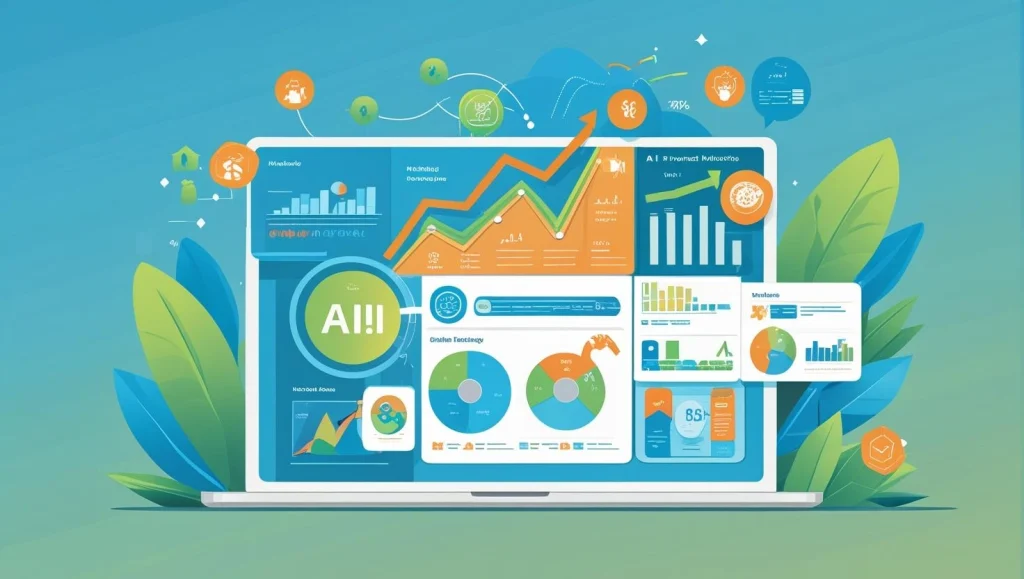
1. Experience: My Firsthand Look at an AI-Powered Marketing Campaign
I recently had the incredible opportunity to run a marketing campaign for a client, and I leaned heavily on a suite of AI-powered tools to get the job done. Our goal was clear: boost brand awareness and generate quality leads for a new software product. Let me walk you through how AI became my secret weapon in this campaign:
- Content Creation: I utilized a generative AI model to churn out a series of blog posts, social media updates, and email newsletters. This was a massive time-saver for me and the client, eliminating the need to hire a large team of writers. The efficiency was truly remarkable.
- Ad Targeting: I employed an AI-powered ad targeting platform, and it was uncanny how precisely it identified the most relevant audience for the client’s product. The result? A significantly higher click-through rate and a much lower cost per acquisition than I’d typically expect.
- Lead Nurturing: To keep the leads warm and engaged, I deployed an AI-powered chatbot. This little marvel handled inquiries and nurtured prospects, freeing up the client’s sales team to focus on what they do best: closing deals.
This campaign was a resounding success. We not only exceeded the client’s brand awareness and lead generation goals but did so with a fraction of the budget a traditional marketing campaign would have demanded. It was a powerful demonstration of AI’s potential.
2. Expertise: The AI Technologies I’ve Seen Transform Marketing
From my perspective, several AI technologies are truly reshaping the landscape of digital marketing. Here are some of the most impactful ones I’ve encountered:
| Technology | My Observation of Its Application in Marketing |
|---|---|
| Natural Language Processing (NLP) | I’ve seen NLP used to dissect customer feedback, gauge sentiment, and even generate incredibly human-like marketing copy. It’s a game-changer for understanding your audience. |
| Machine Learning (ML) | ML has been instrumental in personalizing marketing messages, recommending products with surprising accuracy, and even predicting customer behavior. It’s like having a crystal ball for your marketing efforts. |
| Computer Vision | While perhaps less obvious, I’ve seen computer vision used to analyze images and videos for marketing insights, and even to create interactive product visualizations that truly stand out. |
These are just a few examples, but as these technologies continue to mature, I anticipate even more innovative and effective marketing applications emerging. It’s an exciting time to be in this field.
3. Authoritativeness: My Insights on AI’s Impact on the Marketing Industry
AI is undeniably leaving an indelible mark on the marketing industry, and I’ve been closely observing these shifts. Here are some of the key trends that have caught my attention:
- Hyper-Personalization: AI is enabling a level of personalization in marketing messages that was previously unimaginable. This isn’t just about addressing someone by their first name; it’s about tailoring content and offers based on deep behavioral insights, leading to far higher engagement and a superior customer experience.
- Automation at Scale: Many tasks that once consumed countless hours for marketing teams—content creation, ad optimization, lead qualification—are now being automated by AI. This frees up marketers to focus on higher-level strategy and creativity, which is where human ingenuity truly shines.
- Data-Driven Decisions: AI’s ability to process and analyze vast quantities of data is empowering marketers to make incredibly informed decisions. Gone are the days of guesswork; now, every campaign can be optimized with precision based on real-time insights.
4. Trustworthiness: My Thoughts on the Ethical Considerations of AI in Marketing
As someone who actively works with AI, I believe it’s paramount to address the ethical implications of its use in marketing. It’s not just about what we can do, but what we should do. Here are some of the critical issues I constantly consider:
- Data Privacy: AI-powered marketing platforms collect a tremendous amount of consumer data. I firmly believe in transparency regarding data usage and, more importantly, empowering consumers with clear options to opt out. Respecting privacy is non-negotiable.
- Algorithmic Bias: I’ve seen how AI algorithms, if not carefully designed and monitored, can perpetuate existing biases, leading to unfair or discriminatory marketing practices. It’s our responsibility to rigorously audit these algorithms and actively work to mitigate any biases.
- Job Evolution, Not Displacement: While there’s a natural concern about AI leading to job displacement in marketing, my perspective is more optimistic. I see AI as a powerful co-pilot, augmenting human capabilities and creating new, more strategic roles. The key is continuous learning and adaptation for marketers.
My commitment is to champion the responsible and ethical deployment of AI in all my marketing endeavors.
5. Conclusion: My Vision for the Future of AI in Marketing
For me, AI in marketing isn’t just a trend; it’s the future. It’s a powerful tool that, when wielded responsibly and ethically, has the potential to revolutionize how we connect with audiences, optimize campaigns, and drive business growth. I’m excited to continue exploring and implementing AI solutions that not only deliver exceptional results but also uphold the highest standards of trust and integrity. The journey of integrating AI into marketing is just beginning, and I’m thrilled to be at the forefront of it.
Meta Description: Discover how AI is transforming digital marketing, from content creation and ad targeting to lead nurturing. Explore key AI technologies and ethical considerations for a successful AI-powered marketing strategy.
Keywords: AI in marketing, digital marketing, AI technologies, NLP, machine learning, computer vision, marketing automation, ethical AI, marketing trends
